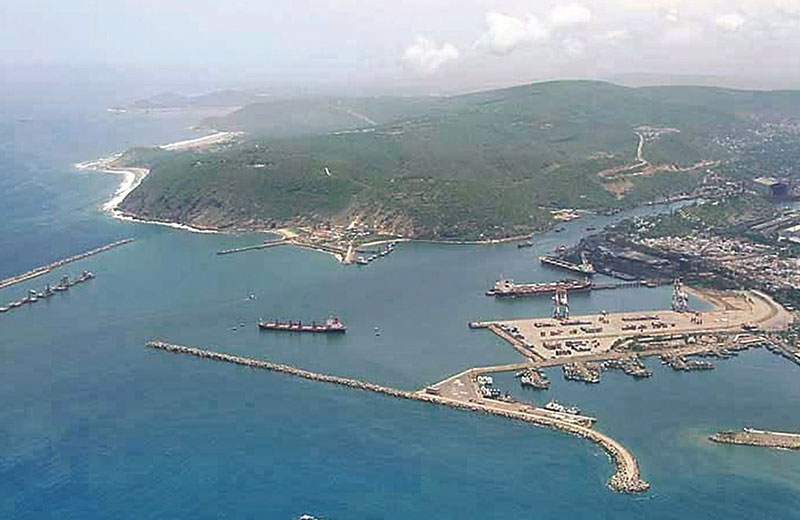[vc_row][vc_column][vc_column_text]
Freight forwarders have asked the government to work towards early operationalisation of Visakhapatnam port which India has allowed Nepal to use for its third-country trade. They believe that the cost of trade will be reduced sharply by using the deep water port in southern India as it can accommodate very large ships.
According to a study conducted by the Nepal Freight Forwarders’ Association (NEFFA) five years ago, the cost of third-country trade can be slashed by 15 percent.
Nepali traders have been facing many problems including traffic congestion at Kolkata port which they have traditionally been using.
According to NEFFA, ocean freight costs, customs house agent charges and other logistic costs can be minimised if trade is carried out through Vishakhapatnam port.
Speaking at an event organized to mark the 22nd Cargo Day on Friday, freight forwarders also asked the government to improve the cargo transport system, build advanced warehouses at customs points, move to increase railway services from various Indian ports, bring automation system in the customs clearing process and allow cross-border insurance.
High transit costs in particular have pushed up the cost of doing business for traders. The World Bank’s Logistic Performance Index 2016 also shows that Nepal has a high logistic cost of doing business.
According to the Commerce Ministry, traders can import goods through mother vessels via Vishakhapatnam port while Kolkata port only allows feeder vessels, “It will help reduce shipping costs,” said Commerce Secretary Naindra Prasad Upadhyay. He also urged the private sector to initiate trading through the newly opened port.
Former NEFFA president Rajan Sharma urged the government to take measures to enable freight forwarders to make shipments through different modes of transport. The current Railway Service Agreement (RSA) with India allows only Container Corporation (CONCOR), a subsidiary of Indian Railways, to transport Nepal-bound cargo. As a result, traders have been facing delays in sending back empty containers to their shipping agents due to traffic congestion on the railways.
As per NEFFA, around 3,000 cargo containers enter and leave Nepal daily. Many traders have been forced to pay detention charges to their shipping agents due to delays in sending back empty containers on Indian Railways.
Hari Bhakta Sharma, president of the Confederation of Nepalese Industries, said a single company had been paying Rs2.2 million to Rs2.3 million on average in detention charges annually.
“There is a need for implementing automation system in documentation for customs clearance,” said Sharma. “The present system of signing a stack of documents and forwarding them to the concerned customs authority has been adding to the cost of cargo transportation.”
[/vc_column_text][/vc_column][/vc_row]






